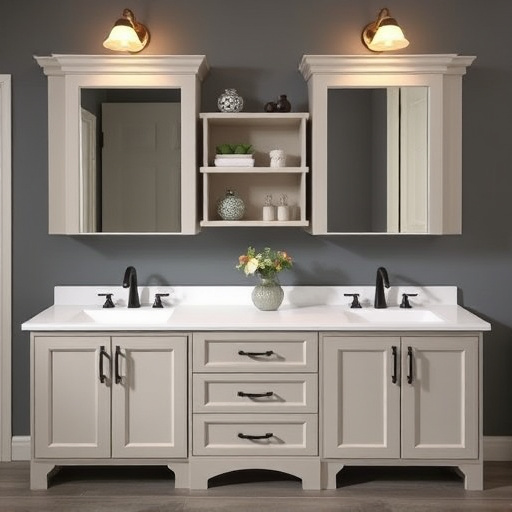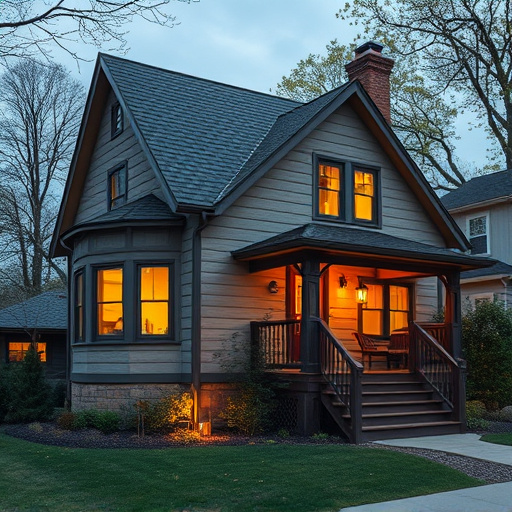Remodeling contractors play a vital role in ensuring building code compliance for all construction projects. They stay updated on local codes, scrutinize plans, conduct inspections, and collaborate with designers to meet safety standards for structural elements, electrical, plumbing, and fire safety, creating secure and up-to-code living spaces.
When undertaking a remodeling project, adhering to local building codes is non-negotiable. This ensures structural integrity and safety for future occupants. This article explores how remodeling contractors navigate this intricate process. We’ll delve into understanding specific building codes relevant to remodels, the crucial roles and responsibilities of contractors, and the verification techniques they employ to ensure compliance. By equipping yourself with this knowledge, you’ll gain insight into the key steps in transforming spaces while maintaining regulatory adherence.
- Understanding Building Codes for Remodeling Projects
- Roles & Responsibilities of Remodeling Contractors
- Techniques to Verify Code Compliance During Remodel
Understanding Building Codes for Remodeling Projects

Remodeling projects, whether it’s a simple floor replacement or a complete multiple room remodel, require a deep understanding of local building codes to ensure compliance and safety. Building codes are sets of regulations that dictate the minimum standards for construction, including structural integrity, electrical systems, plumbing, and fire safety measures. For remodeling contractors, navigating these codes is essential to prevent legal issues and ensure the longevity of the newly renovated space.
A qualified remodeling contractor stays up-to-date with the latest building code changes specific to their region, which often include updated regulations for residential renovations. They thoroughly review building plans, ensuring they align with the current codes before beginning any work. This meticulous approach guarantees that every aspect of the project adheres to safety standards, from electrical wiring in older homes to modern ventilation systems in newly constructed additions.
Roles & Responsibilities of Remodeling Contractors

Remodeling contractors play a pivotal role in ensuring that any construction or renovation project adheres to local building codes and regulations. Their responsibilities extend far beyond just executing the physical work; they are the guardians of safety, quality, and legality on construction sites. These professionals possess a deep understanding of the relevant building codes, zoning regulations, and structural standards applicable to their region.
Before starting any project, remodeling contractors conduct thorough research and assessments to identify specific code requirements for residential renovations, home additions, or customized work. They collaborate closely with architects, engineers, and designers to incorporate these standards into the design phase itself, ensuring a smooth transition from planning to construction. During the renovation process, they supervise all aspects of the work, including electrical, plumbing, and structural elements, to guarantee compliance at every step.
Techniques to Verify Code Compliance During Remodel

To ensure building code compliance during a remodel, remodeling contractors employ meticulous techniques that go beyond surface-level changes. They begin by thoroughly reviewing the property’s existing plans and permits to understand the approved scope and any specific requirements mandated by local authorities. This step is crucial in identifying potential discrepancies or updates to building codes that might have occurred since the initial construction.
Contractors then conduct thorough inspections at various stages of the project. These include checking structural elements, electrical wiring, plumbing systems, and fire safety mechanisms to verify they adhere to current standards. For residential renovations or whole house remodels, this involves assessing everything from window placements and ventilation systems to the installation of new fixtures and appliances. By combining these methods, remodeling contractors ensure that their customized work not only meets but exceeds legal requirements, resulting in safe and up-to-code living spaces.
When it comes to remodeling projects, ensuring building code compliance is non-negotiable. Remodeling contractors play a vital role in this process by understanding local regulations, adhering to specific roles and responsibilities, and employing techniques to verify compliance throughout the remodel. By doing so, they not only protect their clients from legal issues but also ensure safe and up-to-code living spaces. Selecting a qualified and experienced remodeling contractor who prioritizes code compliance is essential for any successful renovation endeavor.














